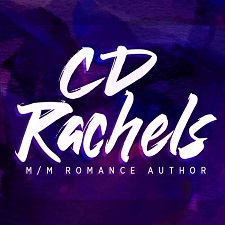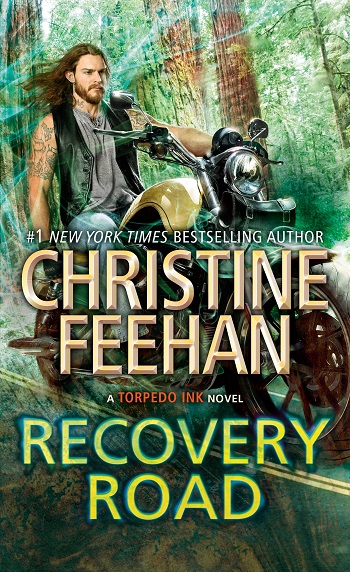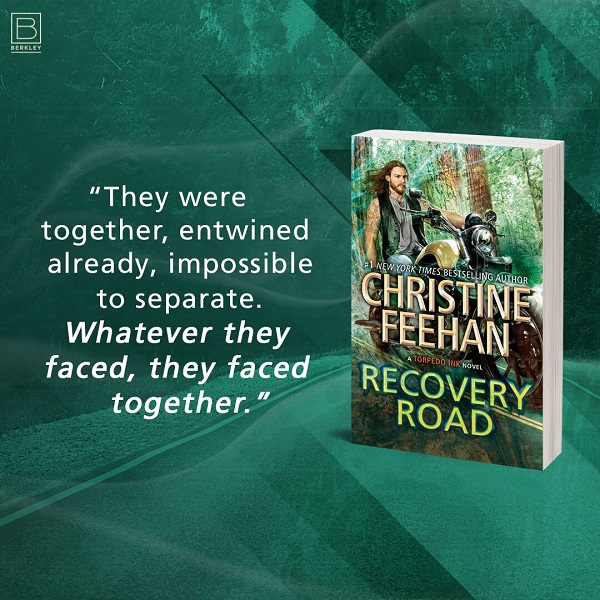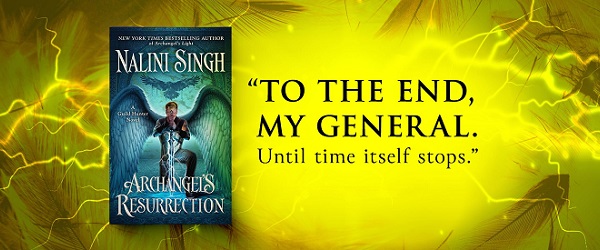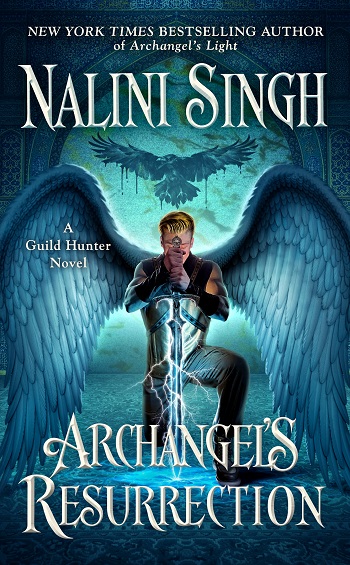Erica
–
☆☆
Archangel's Resurrection is the fifteenth installment in the Guild Hunter series. This cannot be read as a standalone. Even if you've read/reread the entire series, the inundation of past and present characters is still confusing. I couldn't imagine someone new to the series finding enjoyment without knowing the foundation of the world building.
This novel is not a romance, nor is it some complex relationship that evolved over eons. Alexander said to Zanaya. "Our love isn't a madness! The things we’ve done together, Zani. The adventures we've had, the discoveries we've made!"
It's too bad in 400 pages, the reader experiences neither discoveries nor adventures between Alexander and Zanaya. If something other than the madness buried with filler had been shown, maybe I'd believe the love that was told.
Commentary added to the review after reading a third, half, and upon completion of the novel. I wrote these parts in an email draft, waited days as I allowed my frustration to abate, then decided to order my thoughts without allowing my emotions to create a harsher review.
Well, it looks like a book but it doesn't read like one...
The format for this novel is the most bizarre I've ever read – and no, that isn't a compliment. Every scene felt like an introduction. I kept waiting for the story to actually start. Page after page, thinking NOW the story will begin... and it was yet another instance of Singh TELLING the reader what happened instead of allowing the characters to SHOW the story.
Truncated. Zero emotional impact. One-to-three-page scenes featuring overly complex world building, that are basically nothing but filler, fused together into hundreds of pages and called a novel.
Millennia covered in the 30% I've read thus far: told in dual narration. The hero and heroine saw each other TWICE (once from a distance) over a thousand years, speaking ONCE for 30 seconds (if you cut out the hundred pages of inanity, it would have taken 30 seconds to read too). Then, they see each other, immediately kiss (which was written out for a paragraph), then "dance" in the sky (not fade-to-black, the reader blinks and it's over).
In what is the most drawn-out (a millennia) yet insta-love (30 seconds of interaction and they're having sex) romance ever written.
The next page is 300 years later. Two pages later, they fight for a page. Next page, they've been broken up for a decade. Next page, two years later and Alexander decides his brother covering all his windows is an important plot point (yes, this scene does tie in but it was also entirely unnecessary and could have been added/written differently).
That was 30% of the novel, minus inane filler and mind-bleeding info-dumpage the reader did not need. There is zero character development (if you wouldn't learn your lessons when you're over 10-20 THOUSAND years of age, you CANNOT, and nothing I'm told will convince me otherwise, especially with no responsibility taken and no closure).
Archangel's Resurrection is not a free-flowing story. At. All. No emotion. It's basically a list.
Cliff Notes is more detailed.
While I appreciate what Singh attempted to create, I was left frustrated, bored, and confused, while caring very little over the story nor the characters.
I'm at a loss, wondering why the editor didn't say "why are you focusing on that when it has no impact on the overall story?" On. Every. Page. Editors are notorious for commenting "Show, don't tell" This novel was entirely TELL.
I keep waiting for the story to happen. It's the only reason I haven't DNFed. I keep wondering if there was a method to this madness, which had me turning the page... but when I did, the next page was hundreds of years later, truncated in half a sentence (the reader doesn't even get a full paragraph).
I'm at a loss. At what point will this read as a novel? (Answer, around the halfway mark, but it truly never flows like a novel.)
Singh tells us Archangels struggle to be near one another, so the angst should be through the roof between Alexander and Zanaya since they are soul mates, unable to be near one another.
Eons old, Alexander is possessive, jealous, and unreasonable. Slightly younger, but in the grand scheme of things, what is a thousand years among so many thousands of years? Singh states (using all the characters), how unreasonable and stubborn Zanaya is, yet I never saw a single example of this. At. All. It was quite misogynistic to assume Zanaya was the one getting in the way of their happiness by not submitting when they are equals. All they had to do was see each other, do their archangel duties, see each other, repeat. The issues stemmed when Alexander was stomping all over Zanaya's boundaries, with everyone blaming her for being stubborn. Added to that, the reader is to focus on Zanaya repeating history like her mother, but I saw zero obsession on her part toward Alexander, only loyalty, understanding, and love. (You don't want to know what look is riding my facial expression right now.)
So this angst/drama was extremely childish. It could have been hard-hitting and emotional if written differently. The fact that it continued for tens of thousands of years makes it all that much more ridiculous, especially since the reader was dragged along on that ride over the eons.
32% now. They've broken up twice and gotten back together twice (Alexander bedding others, because he loves Zanaya SO MUCH), along with a major change for Zanaya. Hadn't seen each other in a century... Wash. Rinse. Repeat... in 2% of the novel. Maybe two pages. I'm not exaggerating or being sarcastic.
Epic love story, where the reader has experienced three minutes (reading time) of them interacting with one another (95% of which are disagreements), but was told by the author how many escapades they've had with others, which took up more page-time than they've shared. Also told, never shown, so there is zero emotional attachment between the characters or the reader to the characters.
Still 32%. They've broken up and gotten back together innumerable times over 7000 years now (I'm not being sarcastic), and I feel ready for "sleep" myself, as aged as I've gotten reading this.
In my opinion, all of that should have been cut from the novel. If so proficient in truncation, just tuck two or three pages of a backstory info-dump. It's not as if we actually "experienced" their love story anyway. We were repeatedly TOLD and it wasn't entertaining. Like a sentence every 50 years. Just toss the first third and tell the reader now (Cascade forward).
If all that was meant to form an emotional attachment between the characters, all it succeeded in doing was turning my frustration into anger, along with a strong dislike for Alexander. At this point, after hours of frustration, I'm asking myself why I'm still reading.
34%... Cascade.
Did my impatience pay off? Should I get excited?
This better be where the Cliff Notes end and an actual novel begins.
Zanaya wakes in the Cascade. Seems to be reading as a novel now, but they're bickering during a cadre meeting, which seems like the last thing they'd give AF about. Time and place, end of the world is not for petty squabbles, flirting, and Alexander being Alexander (Apparently their love was so epic he had kids with someone else. That's super romantic.). And Singh is using Zanaya to give us a rundown of Alexander's second and third in command (not sure how Zanaya knows this info – she was asleep and all), as if I'll even remember characters who will NEVER see page-time. (Book finished, I was right. Never interacted with them.)
50% mark.
There were good parts, even if they were unneeded. The bad parts were all Alexander and Zanaya. He was a good archangel and a horrible lover. She was a strong archangel who had to fight to keep her lover from consuming her identity. Since they're not real people, Singh created this dynamic that ruined the story. It wasn't romantic or star-crossed lovers. It was cringe because of the execution.
The Zanaya I've read doesn't seem unreasonable in any way. Strong. Places down reasonable boundaries. Intelligent. Wise. Empathetic. Compromising. Good-humored.
Why is everyone (Singh) saying Zanaya is bad for Alexander. That puts the onus of his misbehavior on her instead of him taking responsibility for his own actions and emotions.
There's no such thing as mutual abuse. There is the abuser and the one reacting to abuse. Alexander is arrogant, patronizing, jealous, petty, and controlling; let's not blame Zanaya for striking back at Alexander with Singh calling it daddy issues. Ad nauseam, the reader is told they are mutually toxic, blaming Zanaya for being stubborn... I just didn't see anyone but Alexander being unreasonable, as well as being stubborn.
When the book starts to flow linearly, it reads as if this was Singh's original starting point and all I wanted cut from the story was written afterward.
Awakened by the cascade, Alexander is NOT treating Zanaya well – he's ragey yet they're immediately back in bed again, pretending it'll be different this time. It won't because he hasn't changed. If he had changed, he wouldn't be angry
Alexander is angry Zanaya went to sleep. Zanaya did the ultimate in self-care to ensure her existence. (If Archangels don't sleep, they will become mad, go berserk on the populous, and then will be put down.) So controlling, Alexander thought he should dictate when Zanaya should or shouldn't sleep, as if he knows her body better than her, and the reader was gaslit by Singh to accept this misogyny.
Irony upon irony, funny how no one is mad that Alexander eventually slept. In fact, Zanaya is relieved to discover this. What did Alexander want? For Zanaya to go mad, to where he'd have to put her down? It's like blaming someone for getting medical care. I do not get this "drama" at all.
This circular relationship cycle has destroyed the novel, more so than the storytelling style. The fact that Singh believes this petty nothingness can carry tens of thousands of years of storytelling...
I get Singh wanted this dynamic, but it's not executed well nor is it as dramatic or angsty as assumed. It's childish, ridiculous, because of their ancient age, and unjust as I don't believe any of the burden of fault rests on Zanaya's shoulders, with Alexander being surrounded by people who blame her, including himself.
No matter what happens next, tragedies or miracles, there is no cure to remove the toxicity known as Alexander in their relationship, even if he changes. Tens of thousands of years cannot be erased, especially when he doesn't take responsibility for even a part of the role he played.
There is no actual reason why they're fighting, even if you add in the Archangel Proximity issue, as it's just petty squabbles that Alexander picks at Zanaya.
Alexander (who wanted Zanaya to be his equal – did he though? or was he being patronizing?) is mad because she is behaving as his equal.
Full stop.
How is that a good plot device?
Let's write that out again. He's upset that she won't allow him to control her. He also didn't want to be with her until she was strong enough to hold her own. Now that she is, he's upset she won't bow to his whim...
That's it.
Does that sound like a tragic love story or a story devoid of love and respect? How romantic, healthy, and mature, so let's blame the victim and have our friends tell her she's bad for him. (Zanaya seemed pretty isolated, without her own support system after the first of the novel, always surrounded by Alexander supporters telling her she's bad for Alexander and cadre members.)
Zanaya is rightfully mad that Alexander is being disrespectful, jealous, petty, and controlling, so we'll blame her for stepping from a toxic relationship before it imploded. Should she have stayed and allowed it to become war? I know. I know. She should have given in, given up her identity, and become Alexander's consort, and all would be right with the world. So let's blame her instead of Alexander.
M'kay!
Every page is a struggle. Tedious. An overwhelming amount of indigestible, unnecessary filler.
If executed differently, written as a fluid novel, it could have been good.
I barely tolerated this new form of delivering the story during Ilium's novel. But this was all story "telling" and hardly any time where the reader is immersed in a flowing novel as if it's happening around them.
I hope this trend doesn't continue in the next book. In all the books before, we didn't need a millennia of regurgitated backstory formatted like a plot outline, and we don't need it now. I can't get through the books that are written that way.
I recommend skipping this installment. I wouldn't subject myself or anyone else to this, especially since the main plot was told in all the books before. The frustration wasn't worth wading through eons of a toxic, abusive relationship, where the reader is fed crumbs of details for events where we already know the outcome. Maybe just read the last 20%. That's it.















